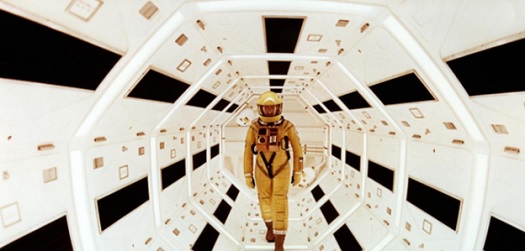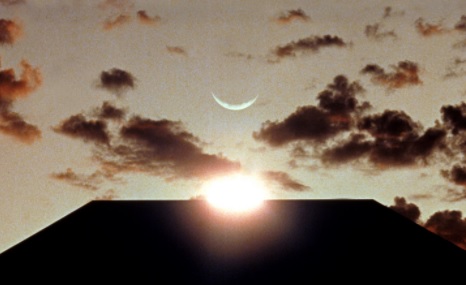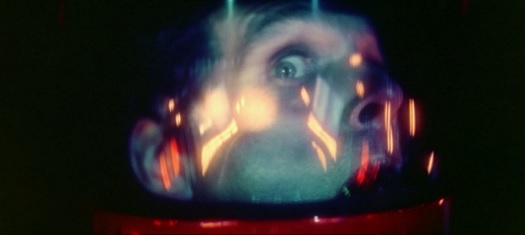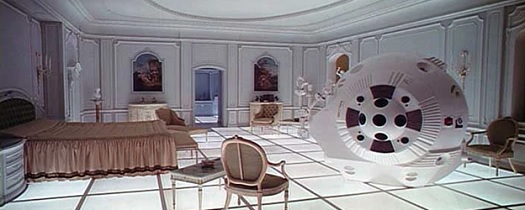Intermarkets' Privacy Policy
Donate to Ace of Spades HQ!
aceofspadeshq at gee mail.com
Buck:
buck.throckmorton at protonmail.com
CBD:
cbd at cutjibnewsletter.com
joe mannix:
mannix2024 at proton.me
MisHum:
petmorons at gee mail.com
J.J. Sefton:
sefton at cutjibnewsletter.com
First World Problems...
After 47 Years Of Asymmetric War, We Finally Have A President Who Understands
Book Thread: March 1st, 2026 [MP4]
Daily Tech News 1 March 2026
Saturday Night Club ONT - February 28, 2026 [2 D's]
Saturday Evening Movie Post [moviegique]: Good Luck, Have Fun, Don't Die
Hobby Thread - February 28, 2026 [TRex]
Ace of Spades Pet Thread, February 28
Nazis, RINOs, Islamofascists, and Other Infiltrators Who Should Have Been Purged Long Ago Are Having a Bad Day
Jim Sunk New Dawn 2025
Jewells45 2025
Bandersnatch 2024
GnuBreed 2024
Captain Hate 2023
moon_over_vermont 2023
westminsterdogshow 2023
Ann Wilson(Empire1) 2022
Dave In Texas 2022
Jesse in D.C. 2022
OregonMuse 2022
redc1c4 2021
Tami 2021
Chavez the Hugo 2020
Ibguy 2020
Rickl 2019
Joffen 2014
maildrop62 at proton dot me
Saturday Evening Movie Thread 04-14-2018 [Hosted By: TheJamesMadison]
What a Coincidence

So, as you may be aware, I've been writing posts on my personal top ten movies of all time. We've gone through the first three chronologically (The Passion of Joan of Arc, Duck Soup, and Casablanca), and keeping in line with the overall monthly or so schedule, it's time for number four, 2001: A Space Odyssey.
I didn't realize the coincidence until last week when I knew that I had to write the post for the movie's 50th anniversary (April 2, 1968). I was super busy last week, so it's coming out now. Weird, though, how its anniversary coincides so well with this little trek through my personal favorites, isn't it?
Anyway, enough of my jibber-jabber, on with the show!
2001: A Space Odyssey
This is a terrible way to start this retrospective, but this is the first movie on the list where I would consider replacing with another. My top ten list is political in nature in that it's designed to drive those who are exposed to it to places in film that I consider important. Stanley Kubrick is a giant in the world of cinema, but I have two movies that he made that I love equally, the other being Barry Lyndon. That being said, let's talk about the movie at hand.
I've never read a review of this movie that said it was poorly made. I've read negative reviews, for sure, but no one ever says that it's poorly photographed, or that the effects look fake. It's remarkable to me how uniform the opinion of the technical merits of the film are across the decades.
Stanley Kubrick was a photographer before he became a filmmaker. He learned how to frame a shot with a combination of simplicity and meaning that is often never replicated in most movies. I think that manifests in a common visual feel to his films where I get the sensation that he didn't like movement in the frame. Kubrick didn't film purely from a stationary tripod like Ozu, but movement was always combined with a certain stillness. Look at the introduction to life aboard the Odyssey. Watch Frank Poole running around the living quarters:
On first glance, there's a lot of motion there. The camera moves left to right and back again. Frank is running in a circle. It seems like there's just a lot of motion going on, except that Frank is never anywhere but at the center of the frame. Despite all of the movement present, the focus of the shot never changes its position within the frame.
This stillness at the center of motion transfixes me. 2001 is a movie that if I catch a glimpse of on TV, I end up losing the next hour or two of my life to it, almost simply at the power of the visual images. I think that the ability to calmly focus on that which is most important in the shot is one reason that I find all of Kubrick's movies, but 2001 in particular, to be so absorbing to watch.
Big Ideas

Another point that no one seems to argue about is that the movie is big in both visual scale and in terms of ideas. Disagreement arises about whether the movie does anything interesting with the ideas it brings up, but I haven't read anyone calling it small. And the ideas at its core are very big.
I think one way to figure out how to watch this movie and try to dissect what is there is to refer to the foreword to a book on Kristof Kieslowski, the Polish filmmaker who made The Decalogue and The Three Colors Trilogy. Here's the quote:
I am always reluctant to single out some particular feature of the work of a major filmmaker because it tends inevitably to simplify and reduce the work. But in this book of screenplays by Krzysztof Kieslowski and his co-author, Krzysztof Piesiewicz, it should not be out of place to observe that they have the very rare ability to dramatize their ideas rather than just talking about them. By making their points through the dramatic action of the story they gain the added power of allowing the audience to discover what's really going on rather than being told. They do this with such dazzling skill, you never see the ideas coming and don't realize until much later how profoundly they have reached your heart.
Stanley Kubrick
January 1991
To Kubrick, his ideal was to dramatize ideas, not to talk about them. For that, I'm sure he'd prefer a conversation instead of a visual based medium. So, taking that point of view in mind, how should one approach 2001: A Space Odyssey specifically?
The key, in my mind, is the opening sequence, The Dawn of Man. From a traditional point of view, this extended dialogue free sequence that involves no named characters who appear later in the film seems superfluous at best. However, I would disagree, I think it's central. Man at this stage is little more than the beasts that it shares the barren landscape with. Man and beasts are picking at the ground next to each other, neither has an advantage over the other. When man comes into conflict with other man, there's little more than impotent demonstrations of size. Then, the monolith arrives without explanation.
After this exposure, man begins to understand the world around him as more than a source for food and water. Man picks up a bone, pushes it back and forth, noticing the effect that pushing one object against another can have for the first time. Man goes further until he's slamming the bone against other parts of the remnant skeleton and destruction occurs. It is this lesson that gives man the leg up over other men and, by extension, the rest of the animals (for the other man is still no more than an animal in comparison).
The monolith gave man insight, and when the monolith appears again tens of thousands of years later, man has progressed very far. No longer scavengers on the ground, we have mastered the Earth and reached the moon, where the second monolith is buried ("intentionally"). The next push by the monolith is more complex, sending man to Jupiter.
Without the Dawn of Man sequence, the monolith seems more opaque to me. We, as the audience, are not supposed to fully understand what the monolith wants, but that opening provides greater dramatic context about that idea. The monolith is pushing human evolution. First it took us on the first step to conquering the Earth, what will the next monolith teach us?
Questions

Here's something about 2001 that I think bothers a lot of people. If they get through the dramatic interpretation of what's on Kubrick's mind to find the ideas, all they end up finding are questions without any real answers.
What is the monolith? Where did it come from? Where is it taking us?
There are no explicit answers to those in the film itself (there's more explanation in the series of books by Arthur C. Clarke and in the movie sequel, 2010: The Year We Make Contact), but it does provide us with something a bit more interesting. This is where we get to the "whoa" part of the film, Jupiter and Beyond the Infinite.
People tend to put up this sequence as a something of a joke. Upon the movie's first release, people would go to the film and get really high just to watch this part of the film, and it's easy to see why. It's trippy with weird colors and sights. It was also unlike anything anyone had ever really seen before. The visual effects supervisor, Douglas Trumbull, created a series of optical effects that felt futuristic and otherworldly (you can see the same fingerprints on his work through V'Ger in Star Trek: The Motion Picture).
But, dramatically, you need to go back to The Dawn of Man to see what's going on. In the first sequence, the monolith provided early man with the knowledge of tools, something mundane to us but which was world changing to them. What's the next step up from where we are now? I don't know, and I imagine that you don't either. The light show (especially in combination with the choice of music, Ligeti's Requiem) shows us the character, Dave Bowman, moving from that which we can understand to that which we cannot until he suddenly appears in that hotel room.

It is here that we see Bowman live out the rest of his natural life in a comfortable and knowable environment (whether that actually plays out in real time or if he actually spends decades in that room is unclear as it should be) until he makes the next evolutionary jump. He must die before he's reborn, an implication that the human race, in order to evolve to our next stage of life, must die first.
HAL
It pains me whenever I see HAL 9000 on a list of movie villains.
To me, HAL is the one sympathetic character in the film, and I think that was by design. The humans in this film are all played fairly flat by the actors. They're almost non-entities. Frank and Dave are largely interchangeable. They look a fair bit alike and there's no real indication that they do anything different on the ship. In fact, when it comes to mission actions, they each go out to the satellite dish and perform the same task (first Dave, then Frank) as though neither one has any advantage over the other.
HAL, though, is different. He's engaging, shows emotion, and is central to the mission in ways that neither Frank nor Dave are.
Looking at Frank, Dave, and Dr. Floyd from earlier in the film, we see bland people who represent the character of humanity in this vision of the future. They are mostly boring. HAL is humanity's attempt at the next step in evolution, and they created someone more interesting.
But, the devil is interesting and it doesn't make him good. Why do I consider HAL to not be a villain?
If you look at the sequence of events that leads HAL to murdering the entire crew, I think it's easy to see. HAL detects a fault in a unit on the satellite dish. Dave brings the unit back and they find no fault. They all agree to put the unit back. Frank and Dave then go into a pod to discuss without HAL overhearing them. In that discussion, they decide to effectively kill HAL. HAL can also read lips, by the way.
HAL read their lips and figured out what they were going to do, so he kills Frank and attempts to kill Dave (unsuccessfully). And, in a fit of cold logic, kills the hibernating three scientists on board knowing that they would deactivate him after waking up to find that he had killed the other two crewmen.
If you ignore literally everything leading up to HAL's decision to kill Frank, he's obviously a bad guy, but including everything before hand makes him a far more sympathetic character. He was acting in self-defense, and when Dave Bowman goes into his brain to begin to pull bits out, killing HAL slowly and regressively until he's no more than a baby, singing "Daisy" like he did when he was first introduced to the world, it's tragic. Killing HAL is not a victory.
Let's Wrap this Up
There's so much to appreciate in this film. It's complex, simple, beautiful, ugly, cold, and warm all at once. It's a masterful achievement that proudly sits atop a master's filmography (seated right next to Barry Lyndon of course).
Movies of Today
Opening in Theaters:
Rampage
Truth or Dare
Beirut
Next in my Netflix Queue:
Gods and Generals
Movies I Saw This Week:
The Tempest (Netflix Rating 1/5 | Quality Rating 0.5/4) Poster blurb: "After Frida and Across the Universe and then this, I think it's time to admit that Titus was a fluke and that Julie Taymor is a terrible filmmaker." [Netflix DVD]
Vanya on 42nd Street (Netflix Rating 5/5 | Quality Rating 4/4) "It did more to convince me of the value of actors in a film than any other film I've ever seen." [Netflix DVD]
John Wick: Chapter 2 (Netflix Rating 2/5 | Quality Rating 1.5/4) "Seriously? This movie makes virtually no sense, is emotionally inert, and barely has any action in it." [HBO]
Frances Ha (Netflix Rating 4/5 | Quality Rating 3/4) "A bit more predictable than it seems to think it is, but it's a well written story of delayed onset adulthood." [Netflix Instant]
2001: A Space Odyssey (Netflix Rating 5/5 | Quality Rating 4/4) [Rewatch] "What the guy up top said." [Personal Collection]
Contact
Email any suggestions or questions to thejamesmadison.aos at symbol gmail dot com.
I've also archived all the old posts here, by request. I'll add new posts a week after they originally post at the HQ.
Joemarine: "Back in the 70's we had the Bottle Cutter kit that ..."
Boss Moss: "How much did Bill Gates invest? ..."
[/i][/b][/s][/u]I used to have a different nic: "[i]If you invested $10,000 in Beyond Meat in 2021, ..."
RedMindBlueState[/i][/b][/s][/u]: "What brand of carbon steel pan are you using, and ..."
mikeski: "Since the Food Thread starts with some FWP content ..."
Martini Farmer: "Tacos and Tequila tonight. ..."
Skip: "A Beyond Meat factory isn't far from me Never tri ..."
Additional Blond Agent, STEM Guy[/i]: "Ok, Skip got the nood. ..."
mikeski: "[i]I over-bought spirits, end of last year. Soluti ..."
tcn in AK: "I bought all "new" dishware, along with many compl ..."
Additional Blond Agent, STEM Guy[/i]: "Carbon steel, say in a wok, can be seasoned but it ..."
First World Problems...
After 47 Years Of Asymmetric War, We Finally Have A President Who Understands
Book Thread: March 1st, 2026 [MP4]
Daily Tech News 1 March 2026
Saturday Night Club ONT - February 28, 2026 [2 D's]
Saturday Evening Movie Post [moviegique]: Good Luck, Have Fun, Don't Die
Hobby Thread - February 28, 2026 [TRex]
Ace of Spades Pet Thread, February 28
Nazis, RINOs, Islamofascists, and Other Infiltrators Who Should Have Been Purged Long Ago Are Having a Bad Day
Paul Anka Haiku Contest Announcement
Integrity SAT's: Entrance Exam for Paul Anka's Band
AllahPundit's Paul Anka 45's Collection
AnkaPundit: Paul Anka Takes Over the Site for a Weekend (Continues through to Monday's postings)
George Bush Slices Don Rumsfeld Like an F*ckin' Hammer
Democratic Forays into Erotica
New Shows On Gore's DNC/MTV Network
Nicknames for Potatoes, By People Who Really Hate Potatoes
Star Wars Euphemisms for Self-Abuse
Signs You're at an Iraqi "Wedding Party"
Signs Your Clown Has Gone Bad
Signs That You, Geroge Michael, Should Probably Just Give It Up
Signs of Hip-Hop Influence on John Kerry
NYT Headlines Spinning Bush's Jobs Boom
Things People Are More Likely to Say Than "Did You Hear What Al Franken Said Yesterday?"
Signs that Paul Krugman Has Lost His Frickin' Mind
All-Time Best NBA Players, According to Senator Robert Byrd
Other Bad Things About the Jews, According to the Koran
Signs That David Letterman Just Doesn't Care Anymore
Examples of Bob Kerrey's Insufferable Racial Jackassery
Signs Andy Rooney Is Going Senile
Other Judgments Dick Clarke Made About Condi Rice Based on Her Appearance
Collective Names for Groups of People
John Kerry's Other Vietnam Super-Pets
Cool Things About the XM8 Assault Rifle
Media-Approved Facts About the Democrat Spy
Changes to Make Christianity More "Inclusive"
Secret John Kerry Senatorial Accomplishments
John Edwards Campaign Excuses
John Kerry Pick-Up Lines
Changes Liberal Senator George Michell Will Make at Disney
Torments in Dog-Hell
The Ace of Spades HQ Sex-for-Money Skankathon
A D&D Guide to the Democratic Candidates
Margaret Cho: Just Not Funny
More Margaret Cho Abuse
Margaret Cho: Still Not Funny
Iraqi Prisoner Claims He Was Raped... By Woman
Wonkette Announces "Morning Zoo" Format
John Kerry's "Plan" Causes Surrender of Moqtada al-Sadr's Militia
World Muslim Leaders Apologize for Nick Berg's Beheading
Michael Moore Goes on Lunchtime Manhattan Death-Spree
Milestone: Oliver Willis Posts 400th "Fake News Article" Referencing Britney Spears
Liberal Economists Rue a "New Decade of Greed"
Artificial Insouciance: Maureen Dowd's Word Processor Revolts Against Her Numbing Imbecility
Intelligence Officials Eye Blogs for Tips
They Done Found Us Out, Cletus: Intrepid Internet Detective Figures Out Our Master Plan
Shock: Josh Marshall Almost Mentions Sarin Discovery in Iraq
Leather-Clad Biker Freaks Terrorize Australian Town
When Clinton Was President, Torture Was Cool
What Wonkette Means When She Explains What Tina Brown Means
Wonkette's Stand-Up Act
Wankette HQ Gay-Rumors Du Jour
Here's What's Bugging Me: Goose and Slider
My Own Micah Wright Style Confession of Dishonesty
Outraged "Conservatives" React to the FMA
An On-Line Impression of Dennis Miller Having Sex with a Kodiak Bear
The Story the Rightwing Media Refuses to Report!
Our Lunch with David "Glengarry Glen Ross" Mamet
The House of Love: Paul Krugman
A Michael Moore Mystery (TM)
The Dowd-O-Matic!
Liberal Consistency and Other Myths
Kepler's Laws of Liberal Media Bias
John Kerry-- The Splunge! Candidate
"Divisive" Politics & "Attacks on Patriotism" (very long)
The Donkey ("The Raven" parody)

